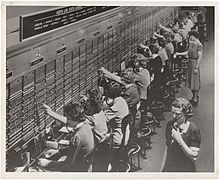A Baird Group study says that 35 percent of callers are unlikely to return to a medical practice if they have a negative experience the first time they call the practice.
Researchers asked two questions, reports Becker’s Hospital Review:
- “Which empirical phone elements are associated with individuals’ likeliness to return?”
- “Which attitudinal phone elements are associated with individuals’ likeliness to return?”
Three findings, as summarized by Becker’s:
1. “Patients were 2.2 times more likely to return to the practice if the attendant introduced himself or herself, 1.9 times more likely to return if the attendant gave the name of the location reached, and 1.7 times more likely to return if the attendant offered assistance.”
2. “Patients were 4.1 times more likely to return if the attendant did not interrupt, the report found. Additionally, phone encounters in which the attendant spoke slowly and clearly (compared with not speaking slowly and clearly), resulted in potential patients being 2.2 times more likely to report that they would return to the facility.”
3. “As far as appointment access, callers who were offered an appointment more than two weeks out were 4.4 times less likely to return, and callers who were told an appointment was unavailable were 4.8 times less likely to return.”




